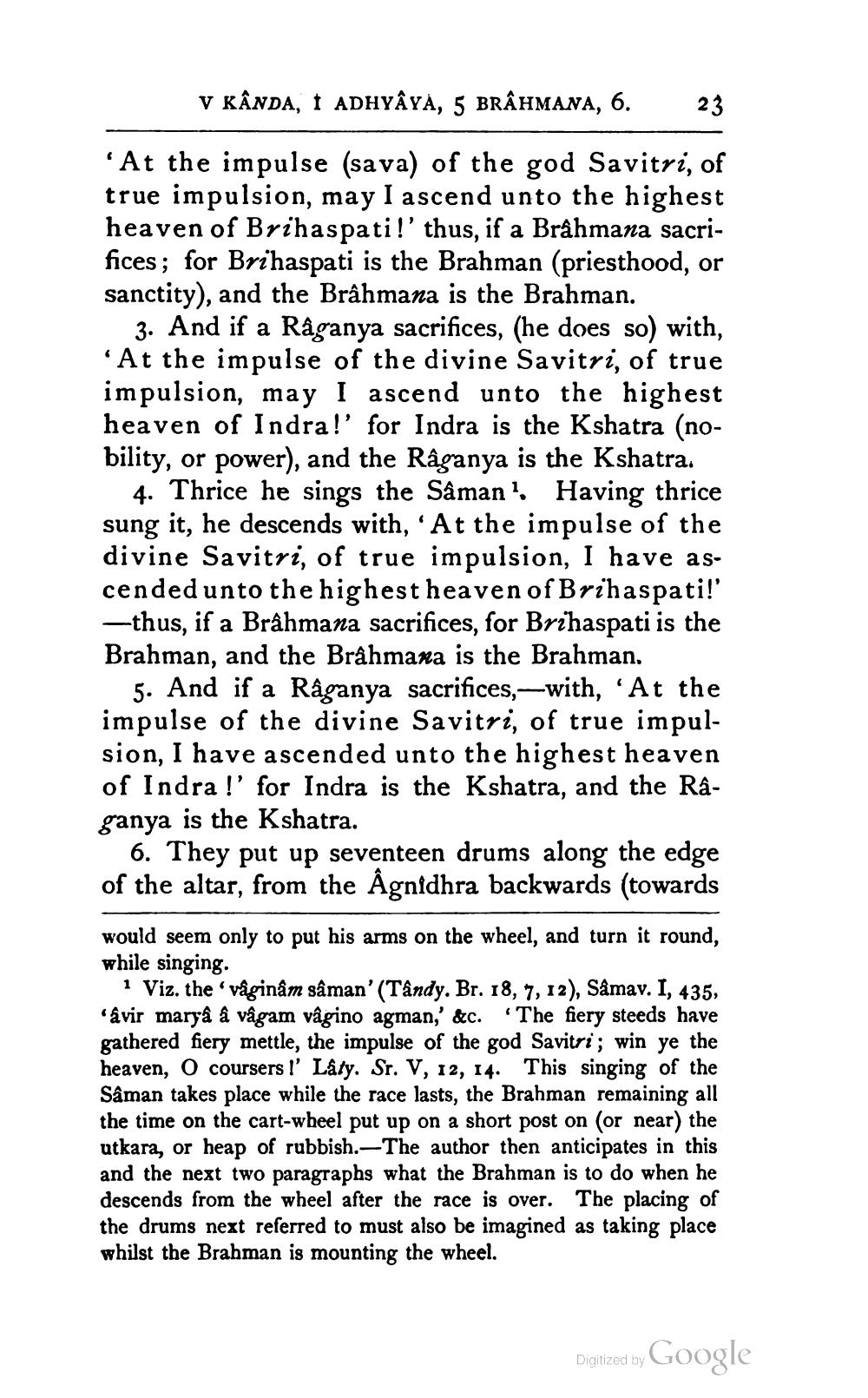________________
V KÂNDA, 1 ADHYÂYA, 5 BRÂHMANA, 6.
23
"At the impulse (sava) of the god Savitri, of true impulsion, may I ascend unto the highest heaven of Brihaspati!' thus, if a Brâhmana sacrifices; for Brihaspati is the Brahman (priesthood, or sanctity), and the Brâhmana is the Brahman.
3. And if a Råganya sacrifices, (he does so) with, At the impulse of the divine Savitri, of true impulsion, may I ascend unto the highest heaven of Indra!' for Indra is the Kshatra (nobility, or power), and the Râganya is the Kshatra.
4. Thrice he sings the Saman'. Having thrice sung it, he descends with, 'At the impulse of the divine Savitri, of true impulsion, I have as. cended unto the highest heaven of Brihaspati!'
-thus, if a Brahmana sacrifices, for Brihaspati is the Brahman, and the Brâhmana is the Brahman.
5. And if a Râganya sacrifices, -with, 'At the impulse of the divine Savitri, of true impulsion, I have ascended unto the highest heaven of Indra !' for Indra is the Kshatra, and the Râganya is the Kshatra.
6. They put up seventeen drums along the edge of the altar, from the Âgnidhra backwards (towards
would seem only to put his arms on the wheel, and turn it round, while singing.
1 Viz. the 'vaginâm sâman' (Tândy. Br. 18, 7, 12), Såmav. I, 435, 'âvir maryâ â vågam vagino agman,' &c. 'The fiery steeds have gathered fiery mettle, the impulse of the god Savitri; win ye the heaven, O coursers l' Láty. Sr. V, 12, 14. This singing of the Sâman takes place while the race lasts, the Brahman remaining all the time on the cart-wheel put up on a short post on (or near) the utkara, or heap of rubbish.—The author then anticipates in this and the next two paragraphs what the Brahman is to do when he descends from the wheel after the race is over. The placing of the drums next referred to must also be imagined as taking place whilst the Brahman is mounting the wheel.
Digitized by Google




